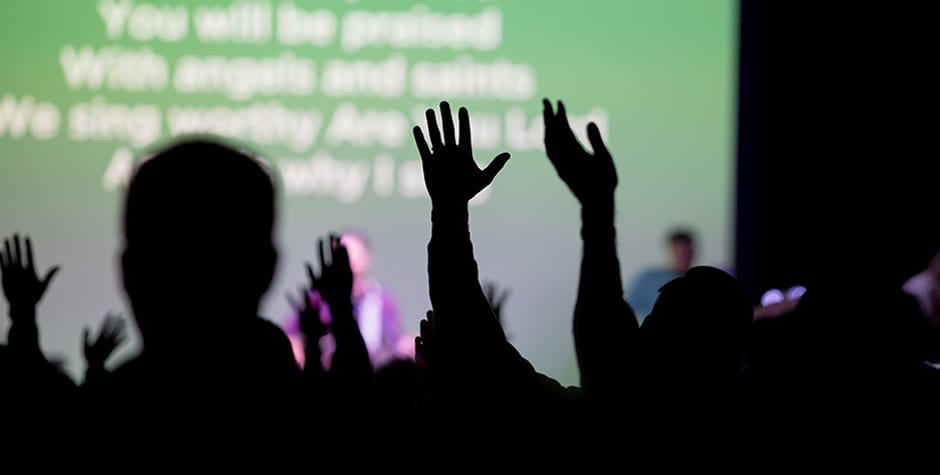ACLJ Files Appeal in Case Defending Church Being Barred From Gathering Without a Liquor License
The ACLJ just filed an appeal to the Fourth Circuit Court of Appeals in our case defending a Virginia church that was banned from holding services and events on its own property unless it obtained a LIQUOR LICENSE – a blatant violation of the church’s rights.
We told you how Prince William County (PWC), a powerful county in northern Virginia, is blocking our client, Alive Church, from worshiping and functioning on their land because the church is unwilling to get an ABC license (a liquor license) because of its denominational stance on alcohol. If our client could get the ABC license, the county says it would then allow the church to operate and hold events, gatherings, outdoor music, etc. in the same way it lets breweries or wineries operate. It’s completely absurd.
This is a clear-cut example of religious discrimination and bias against churches by a government bureaucracy, and we will not stand by and let it happen.
We filed our lawsuit in federal court on behalf of Alive Church of the Nazarene’s right to utilize their property without having to acquire a liquor license when they don’t even so much as use real wine in their Communion services, let alone serve any other form of alcohol. This lawsuit is a religious land use/zoning case we are bringing under the federal Religious Land Use and Institutionalized Persons Act (RLUIPA) and the United States Constitution. Unfortunately, PWC claimed to the court that our client didn’t even have standing to sue to stop this blatant violation of religious liberty. The Court rejected the County’s standing argument, but went on to dismiss our case.
Now, we have just filed our appeal in the U.S. Court of Appeals for the Fourth Circuit, urging the appeals court to consider our case and hear oral arguments. Our appeal cited multiple instances where we believe PWC was incorrect in demanding the church obtain a liquor license as well as in its argument asking the court to dismiss our case.
As we posed to the court in our questions presented in our opening brief on appeal:
Did the Church state a claim that the County violated RLUIPA and the First Amendment by denying the Church permission to meet on its Property for religious worship when it would allow secular assemblies and institutions such as farm wineries, breweries, and other agritourism uses to meet and assemble on the Property for secular purposes?
May the County require a Church to obtain a Virginia Alcoholic Beverage Control (ABC) license to sell alcohol, in violation of its sincerely held denominational religious beliefs, in order to worship on its land, or to enjoy the same beneficial land use treatment the County gives to farm wineries and limited license breweries, all on A-1 land, and even where the County knows the Church would not actually produce or sell alcohol – without violating RLUIPA or the First and Fourteenth Amendments to the United States Constitution?
Our appeal also explained why, based on the actions of PWC, we were left with no other choice but to file a lawsuit due to the unreasonable, unconstitutional demands the county was putting on our client:
Left with no avenue to begin meeting on its Property, the Church instituted this action that challenged the unequal treatment of the Church with farm wineries and breweries and agritourism uses. In its Complaint, the Church alleged that it met all the requirements and has the necessary approvals to be treated by the County as a bona fide agricultural use and as a farm winery or brewery except for its inability to obtain an ABC license. The Church alleged that if its religious beliefs allowed it to obtain an ABC license, the County would allow it to exercise its religion, via agritourism gatherings and functions on the Property.
The Church also alleged that it was being treated differently than farm wineries, breweries, and agritourism uses who were allowed to hold gatherings, meetings, functions, and the like on A-1 Property whereas in contrast the Church was not permitted to hold religious gatherings, meetings, and the like on its A-1 property. The Complaint alleged that the Church met the purpose of the A-1 Agricultural district because the Church intended to conduct agricultural activities on its Property.
Just as we fought against – and helped defeat – California’s unjust ban on singing and chanting in churches during the pandemic, we must continue to defend churches’ rights to gather and worship as they are commanded by Scripture. We cannot allow government municipalities to exercise their own bias to discriminate against believers and put unfair burdens on churches to keep them from meeting.
We will continue to keep you informed as this case progresses.
